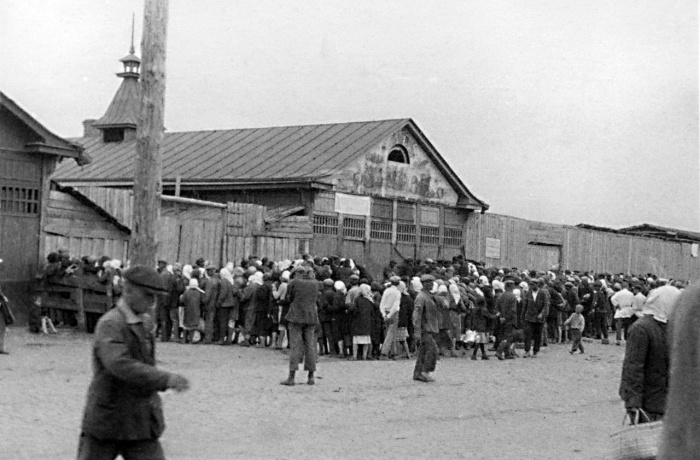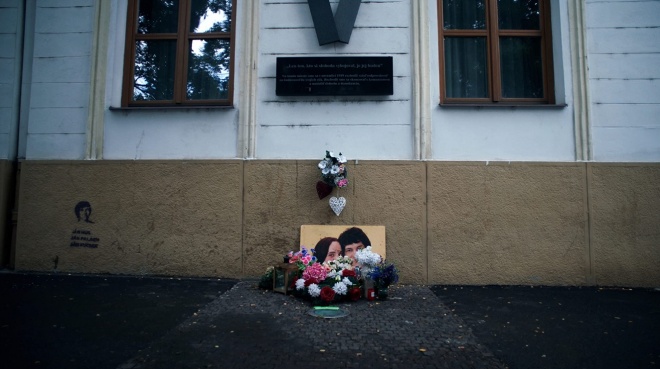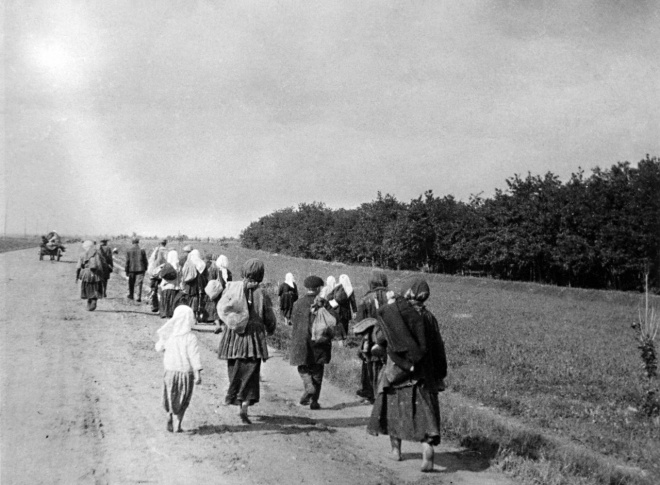Exploring the journalistic journey: Film screenings during the Travelling Docudays UA in Zhytomyr region
Exploring the journalistic journey: Film screenings during the Travelling Docudays UA in Zhytomyr region

From December 12 to 19, the Travelling Docudays UA unfolded in Zhytomyr region, showcasing three films that focused on journalistic efforts. The screenings spanned four towns – Zhytomyr, Irshansk, Malyn, and Khoroshiv. The festival featured viewing and discussing three documentaries: Unconquered Kherson, Seeds of Hunger: Ukraine 1933, and The Killing of a Journalist.
For the past 15 years, the NGO Modern Format has consistently organized the Travelling Docudays UA in Zhytomyr region. Since the onset of the full-scale war, the event adapted to wartime conditions, forgoing cinema venues in favour of smaller spaces.
“In Irshansk, we had our screenings in the Bunker Hub, providing a sheltered space. In Zhytomyr, we gathered in a hall, where in case of electricity problems, we had an electric generator on standby. We also screened one film at Zhytomyr Polytechnic, where about 200 students showed up to watch Unconquered Kherson. We were worried about potential air raid interruptions, but everything went smoothly. However, the next day, our screening got delayed, and our audience had to hurry down to the shelter due to missile launch reports. Also, our festival began when Ukraine’s biggest cellular company had a major service outrage, complicating the organization process,” says Viktoria Kuzmenko, the project’s regional coordinator.

A still from The Killing of a Journalist
The film selection for the Travelling Docudays UA in Zhytomyr region was curated by Maryna Khainak, a specialist at Modern Format, who has been coordinating the project for many years and was forced to stay abroad since the war’s onset.
“All three films showcased in Zhytomyr this year revolve around the work of journalists. These documentaries span different historical periods and feature journalists from various countries. However, each film underscores the importance of telling the truth, emphasizing the perils of propaganda and deceit. So we talked about this a lot with the audience, directors, and participating experts,” shared Victoria Kuzmenko.
Matt Sarnecki, director of The Killing of a Journalist, and Ustyn Danchuk, director of Unconquered Kherson, joined the conversation via video link. They answered the questions from the audience and also talked about the filmmaking process and their motivations.
“We are now living in a time when everything we do must contribute to victory. For journalists, this means everything we do should enable the world to learn as much as possible about the unfolding events,” expressed director Ustyn Danchuk.

A still from Seeds of Hunger: Ukraine 1933
After the screening of Seeds of Hunger: Ukraine 1933, the audience, along with Doctor of Historical Sciences, Professor Halyna Starodubets, drew parallels between the ongoing war and the events of 90 years ago.
“Now it is obvious that the extensive aggressive propaganda conducted by Russia for an extended period, this hybrid war that permeates social networks, television, and the press, is extending globally and is not confined to Ukraine. This type of propaganda was foundational to the Soviet Union. It created a virtual state where films like Volga-Volga or Kuban Cossacks, produced in 1935, thrived. That is, people were dying, and there was still this narrative of a happy life,” remarked Halyna Starodubets.
According to her, Soviet state propaganda worked to create a virtual reality.
“You live here because you don’t work the way you should, don’t love Stalin the way you should, don’t respect the Bolsheviks the way you should. Your neighbours, on the contrary, are decent people, living on a beautiful collective farm. They even brought the French ambassador to show how wonderful your life is. The world, gripped by the fear of fascism, pretended that such things didn’t exist. It didn’t want to intervene and risk offending Stalin. We’re witnessing the same thing today: fundamentally, nothing changes. But it’s crucial for us to be aware of this, consciously analyse the ongoing events, and recognize the repetitions,” concluded Halyna Starodubets.
Main photo: A still from Seeds of Hunger: Ukraine 1933.
The 20th Travelling Docudays UA is supported by the Embassy of Sweden in Ukraine, the Embassy of Switzerland in Ukraine, and the US Embassy in Ukraine. Opinions, conclusions, or recommendations do not necessarily reflect the views of the governments, charities, or companies of these countries. The content of this publication is the sole responsibility of its authors.












